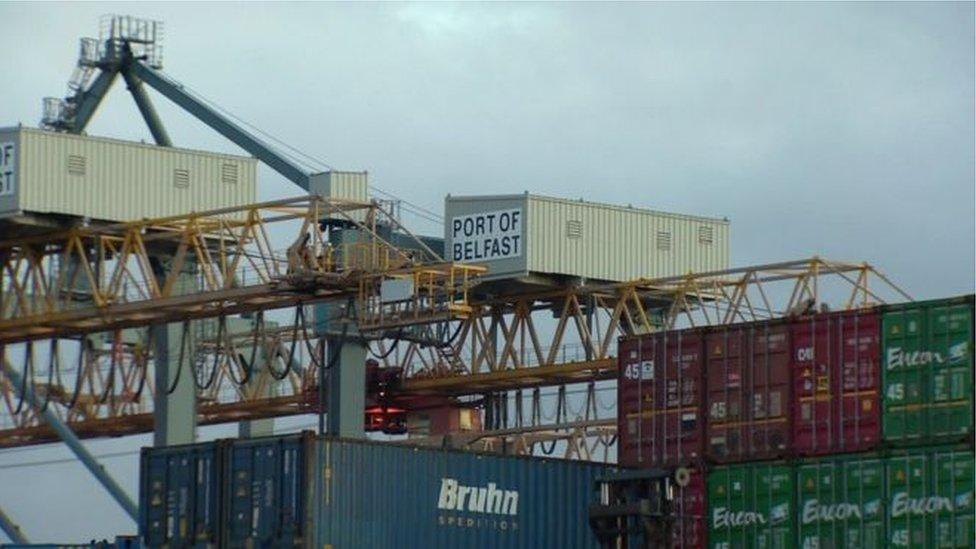Brexit: Three weeks to finalise plans for GB to NI checks
- Published

Officials have less than three weeks to finalise plans for facilities to check goods moving between Great Britain and Northern Ireland after Brexit.
Two hundred lorries a day cross the Irish Sea to Northern Ireland with fresh food for supermarket shelves.
That will now have to come through so-called border control posts to comply with the EU/UK Brexit agreement.
Plans for extended facilities at our ports and airports must be approved by the European Commission.
Northern Ireland's Chief Vet Robert Huey said in order for the approvals to be in place by the end of the transition period, the application would need to be completed by 23 June 2020.
Stormont's agriculture and environment committee was told that detailed planning work had only been able to start on 27 May, the day after the UK government published its view on how the Northern Ireland protocol would work.
Meetings have now been held with Larne, Belfast, Warrenpoint, Foyle and the two main airports with officials working seven days a week on the plans.
MLAs heard that facilities would have to be extended at Belfast, through which 60-70% of food entered, and also Larne and Warrenpoint.
Mr Huey said a smooth end to transition "would not be possible", rather he said his priority was to put in place a minimum operation which would keep supermarket shelves stocked and live animals moving.
"None of this will be easy," he told the committee adding that the co-operation of politicians in both London and Brussels would help ease the process.
The Department of Agriculture, Environment and Rural Affairs (DAERA) Permanent Scretary Denis McMahon said the money for implementing whatever was necessary would be sought from the treasury and he would have a better idea of the financial costs in the coming weeks.
MLAs were also told that importers would potentially have to cover the cost of any checks that would be needed on goods moving from Great Britain to Northern Ireland.
Officials said that if the UK and EU could agree a free trade agreement it would help simplify the processes involved and the number of physical checks required.